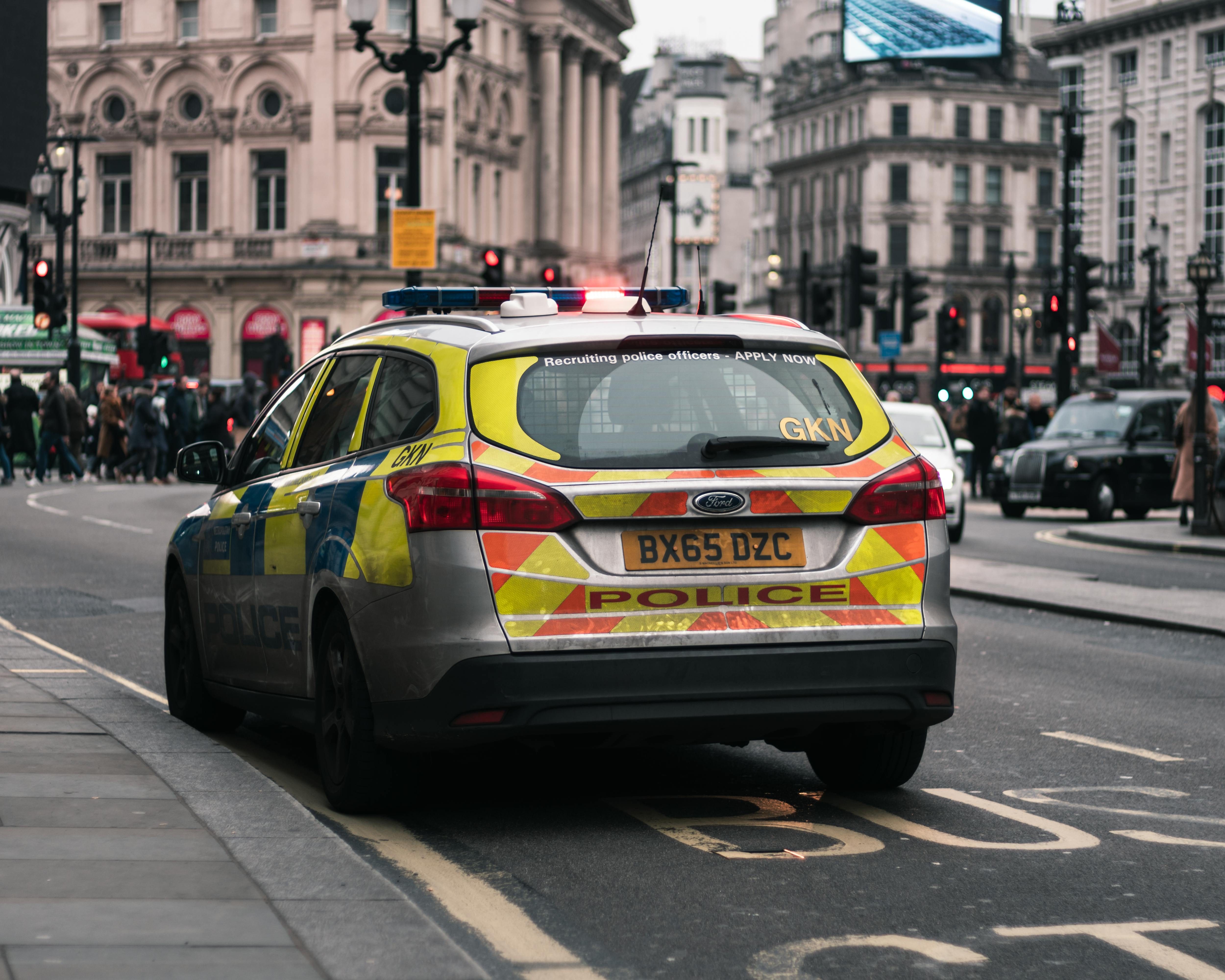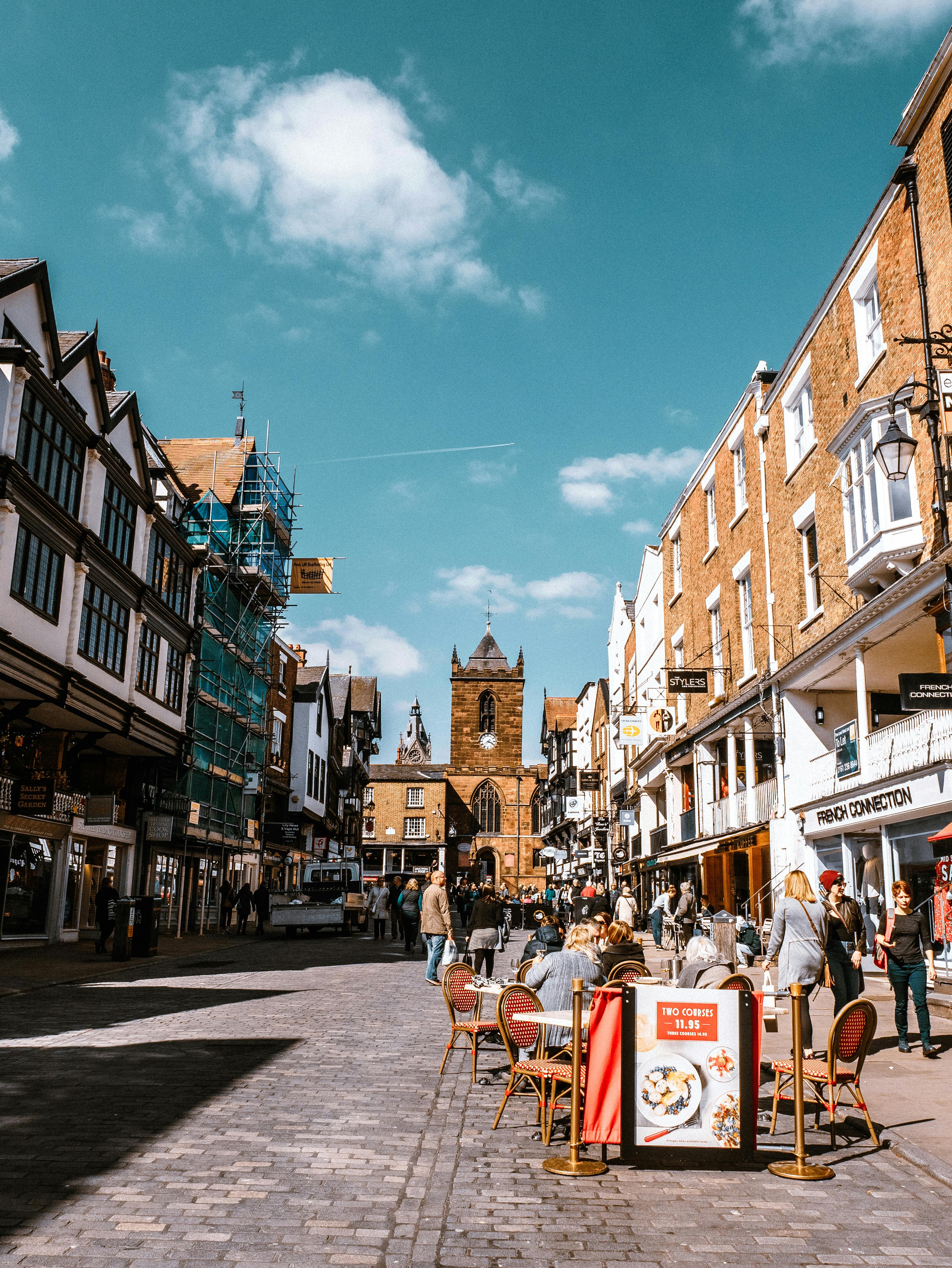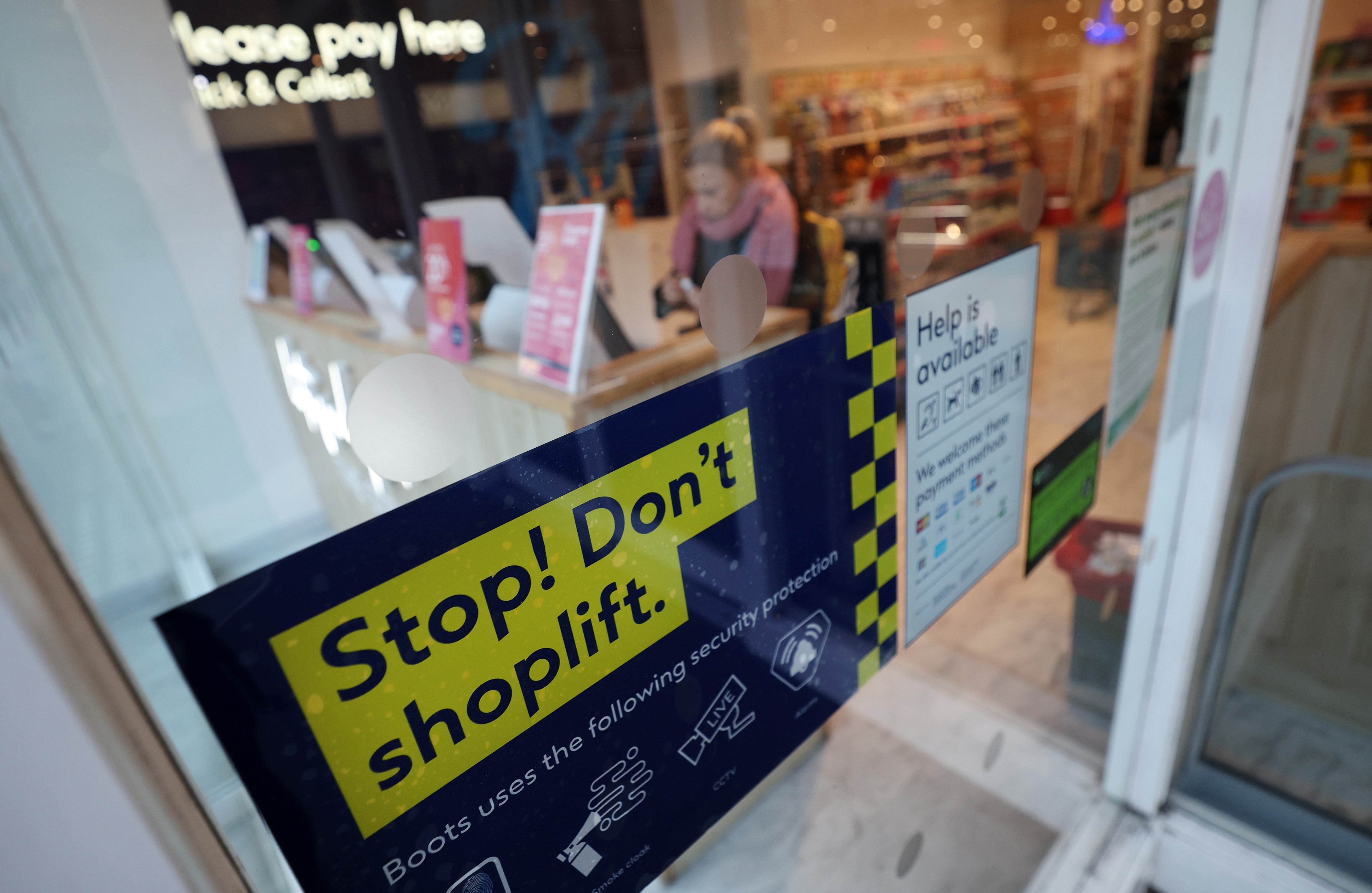Britain has turned from a nation of shopkeepers into a nation of shoplifters – and we’re all paying a shocking price
The shoplifting epidemic is at a record high and spans all sections of society. Whether it’s a result of the cost of living, soft protest, self-scan tills or the lack of deterrent, Zoë Beaty says one thing is clear: it is far from a victimless crime, and its consequences are being felt by all of us – in some surprising ways


In South Ruislip, west London, at around 2pm on a grey day in mid-February, a woman walks into Greggs, fills up her bag with sandwiches, and walks out again. A few miles away at a branch of The White Company in north London, a customer is told that there are no candles left because someone just came in and “took them all”. In Boots, across town, a security guard and a queue full of people watch as a man wanders in and fills his bag before ambling out without paying. Meanwhile, a middle-class mum in a Marks and Spencer’s food hall conveniently forgets to scan some top-notch smoked salmon and quail eggs.
“We do it because we enjoy it,” says James*, a 25-year-old student in Nottingham, who has honed his shoplifting skills over many years. In fact, he’s just popped into Tesco to steal a bottle of Fanta, which he promptly produces from his coat pocket.
Across the country, a shoplifting epidemic is well underway. According to the British Retail Consortium (BRC), last year the number of offences rose by 3.7 million, to a record high of 20.4 million. Violence and abuse targeted at shop workers rose by 50 per cent, with an average of 2,000 incidents recorded every single day across the country.
Shoplifting has become “brazen” and out of control, experts said in response to the newly published statistics: it’s now costing retailers more than £2.2bn each year. So what has turned us from a “nation of shopkeepers” into a nation of shoplifters?
Some of this rising crime can inevitably be attributed to the cost-of-living crisis that is simultaneously squeezing more household budgets below the poverty line than ever before – that baby formula is one of the most frequently shoplifted items in the UK sadly comes as no surprise.
In London, the unprecedented rise in the cost of living has been blamed for a 50 per cent increase in shoplifting across the capital, which tallies with the types of product that are often being stolen – shopping basics such as nappies and cheese. Over the last few years, more and more people have confessed that it was this – often combined with job insecurity during the pandemic – that led them to begin shoplifting.
From some angles, there’s little surprise: towards the close of last year, the Trussell Trust revealed that more than 9 million Britons are now vulnerable to reliance on food banks, while more than 1 million are living in “hunger and hardship” – with an income at least 25 per cent below the relative poverty line – than five years ago.
However, in 2025, the average thief doesn’t fit any one profile. Increasingly, people believe they’re “owed” a few items here or there: that, because of successive governments and a worsening economy making life a little harder, a “get your own back” attitude is justified, in a world where wages are low and prices are high.

“Supermarkets like Tesco are fair game,” a middle-class friend who works at a junior level in a marketing firm tells me. “Why should they profit when the rest of the country is on its knees?”
She’s far from alone: according to The Grocer, almost 40 per cent of shoppers admit to stealing via self-scan tills, with men and people under 35 being the biggest culprits. My friend justifies it as “a soft protest”. The thing is, when “revenge” entails “forgetting” to scan some pricey parmesan, or improperly weighing some organic tomatoes, it all gets a bit thin, doesn’t it?
Elsewhere, reports of people from a different demographic stealing non-essential items – such as makeup and moisturiser, for example, or stationery – are becoming commonplace. In Haslemere, the owner of a small boutique reveals that “well-off, middle-aged women” who shoplift jewellery and Jellycat toys are her biggest threat.
In Nottingham, the home of Robin Hood – a city that was last month crowned the shoplifting capital of the UK, knocking Cleveland off the top spot with a rate of 13.4 offences per 1,000 people in 2023/24 – it’s a similar story. Here, police arrest a person for stealing almost daily, but retailers tell me this is just a small fraction of the level of crime they witness.
Staff at Fopp, a small music, books and tech shop on Nottingham’s sought-after Bridlesmith Gate, are constantly fearful of being targeted. Abbey Tredget, assistant supervisor, says that in her 10 years of experience working in retail, shoplifting has never been so prevalent – or so expensive.
Rent on Bridlesmith Gate is around £75,000 per year, she and sales assistant Aeden Pashley-Smith tell me, and shoplifting is an even costlier overhead. They can’t have a security guard until theft becomes a bigger expense than their wages. Until then, the pair – a beautifully made-up goth and a young media student – have to face intruders themselves.

Last week, Abbey was in a particularly frightening situation. She recognised a reoffender entering the premises, and followed them over to where the most expensive Blu-rays and sets are displayed. “Usually they just take an armful and walk out – they don’t care that we’re there or that there’s CCTV,” she explains.
“They take them to sell straight on at a second-hand trading shop down the road. So I went over and stood right by them, and blocked the shelf. When the thief still tried to take them, I pushed all the products onto the floor. It worked, but I was shaking afterwards.”
A few doors down, Sami Kemal, the manager of vintage boutique Garms, tells me about the five overnight burglaries the small business has suffered in the last few years, which have come at a huge cost. He says that while he believes the majority of the city’s thieves are acting out of hardship, that doesn’t tell the whole story. There’s also the element of entitlement.
A security guard working the doors at Primark tells me that last weekend he caught four women working together to steal more than £500 worth of clothing and products; this week he accosted a prolific thief whom the team has been watching for months. He says that it’s never been as rife as it is right now – and never so brazen, or violent (Nottingham was once known as “Shottingham” for its high level of violent crime). “I’ve been threatened with knives; they say I’ll get shot or [that] they’ll beat me up after work,” he explains. “There’s verbal abuse on a daily basis, but you get used to it.”
Security guards have to operate under a strict set of rules in order to be able to stop someone, he explains. It’s not easy – and protection comes at a huge expense. The trouble is, thieves know this, so even the presence of a guard isn’t the deterrent it used to be.
“People know they’re not going to prison,” a shopworker in Tesco tells me – the £200 “shoplifting threshold” that treats theft under that amount as a petty offence has been in place since 2014, though prime minister Keir Starmer vowed in November to scrap it.

It’s long been a politically pertinent issue: in April last year, Rishi Sunak’s government announced a crackdown on “low value” shoplifting, including £55m of funding for facial recognition tools to help police identify serial offenders. During the summer election, it became a key issue in policy across the political spectrum, and it featured prominently in the King’s Speech in July.
In August last year, analysis by The Times found that “police officers have almost entirely ceased punishing shoplifters despite the number of offences soaring to record levels”, citing statistics that showed that just 431 shoplifters were handed fixed penalty notices in the year to March 2024. “This represents a 98 per cent drop from a decade ago, when 19,419 were issued,” the paper reported. “The majority of police forces did not issue a single penalty for shoplifting over the last year.” Many exasperated shopkeepers report performing citizens’ arrests in an effort to protect their business.
Those on the left point to breaking-point, post-Brexit inflation rises, or the deepening wealth-divide wrought by decades of austerity, as an explanation. Shadow home secretary Chris Philp claimed in January that the cost-of-living crisis cannot be blamed for the rise in theft because the UK’s benefits system is “very generous”, but many argue otherwise. Research by the Joseph Rowntree Foundation shows that universal credit is leaving families at least £35 per week short of being able to afford food and heating. On the very lively groceries black market, meat is one of the most covetable items stolen by small gangs to resell at a cheaper cost.
From the right comes another legitimate warning: underfunded, ineffectual policing is creating chaos, and expensive chaos at that. Shopkeepers face a bill of more than £2,000 to install and run CCTV, while the average cost of a security guard is £30 per hour – around £60,000 per year for 40 hours per week.

Some businesses – like one a few doors down from Garms in Nottingham – simply can’t cope, Kemal says. The clothing boutique, which sold high-end high-street items, closed permanently in October after being targeted with violence by thieves twice in two days, he explains. “Someone went in there with a weapon; there was just an 18-year-old lad working in the shop on his own,” Kemal says. “One of the times, [the owner’s wife] was in the shop – I don’t know if the child was in there too, but they had a newborn baby at the time. It’s scary.”
While retailers are already battling the internet shopping era, these huge risks and extensive costs are yet another threat to the rich history of the British high street. Not only does widespread theft put businesses and jobs at risk, but it also adds up for everyone else. Stealing a few quid by pocketing an avocado or two has consequences that reach far beyond the self-checkout.
Each theft contributes to “shrinkage”, which eats into margins and in turn raises prices for everyone else. For large-scale businesses, the cost can be distributed over more products and stores – this adds an estimated £133 per year onto the average consumer’s shopping bill. For small, privately owned shops, it’s untenable. It also adds to the thousands of papercuts destroying our once much-loved high streets, as more and more shopkeepers are forced to close, leaving city centres looking and feeling sad and abandoned.
All of which adds up to one thing: while shoplifters like my city worker pal assume that their pilfered avocado is a victimless crime, it’s quite obviously not. And, unless action is taken, there’s an awful lot at stake. Until then, we’re all paying for it in so many ways.
What do you think is behind the shoplifting epidemic and how it is changing our high street? Let us know in the comments below
Join our commenting forum
Join thought-provoking conversations, follow other Independent readers and see their replies
Comments

Bookmark popover
Removed from bookmarks